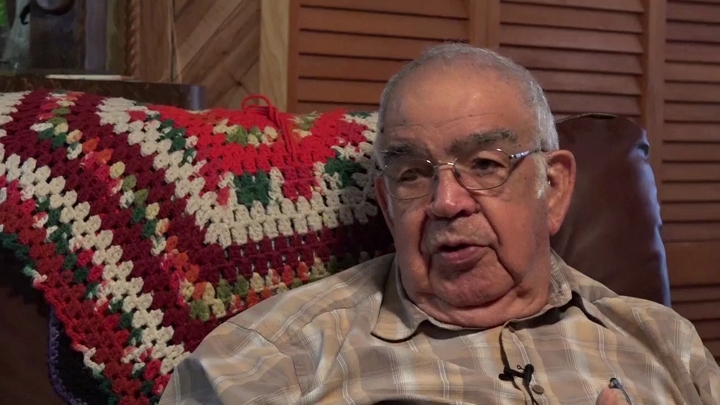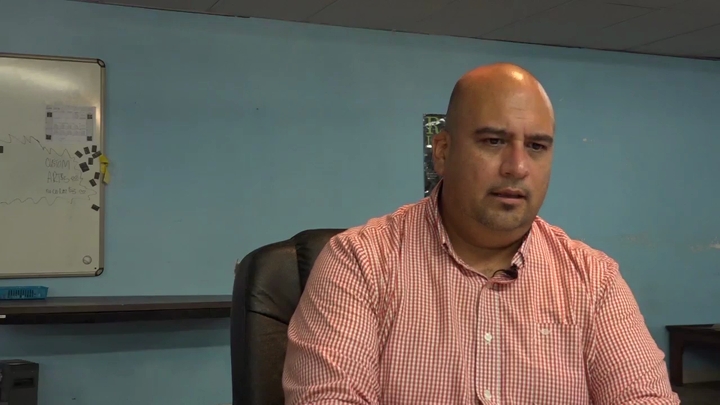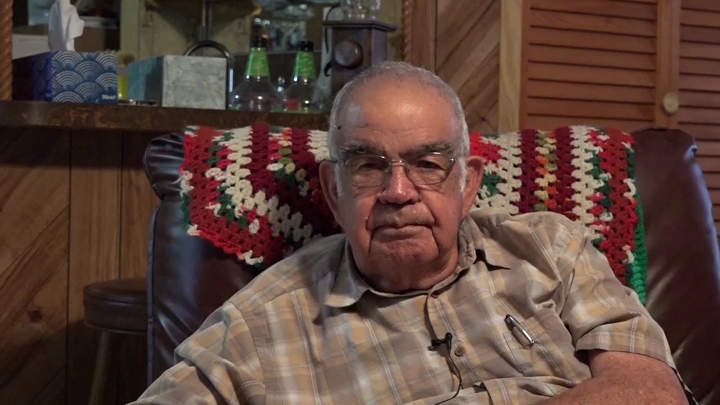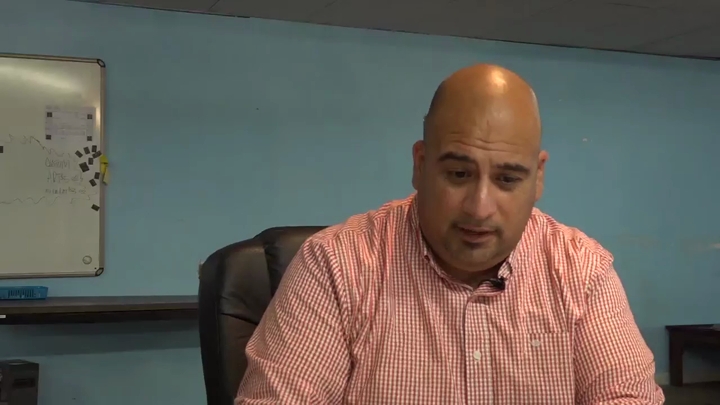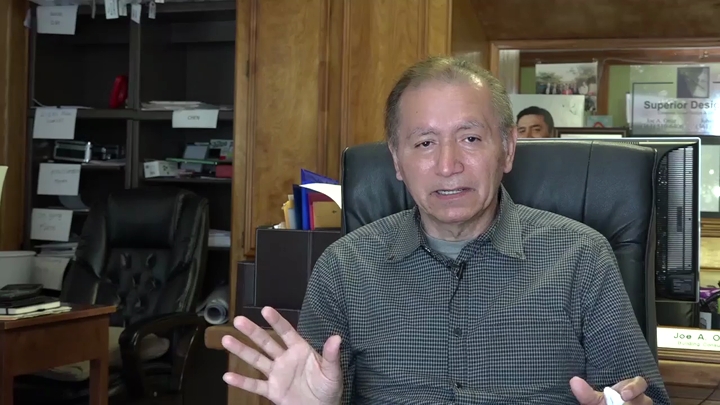Lee / Community Aspects, Part One
sign up or sign in to add/edit transcript
Interviewer: For both of you, how did you meet your spouses? Proctor: We went to school together. Graduated the same year. Interviewer: How’d you meet your wife? Lee: My first wife, I knew her family in high school. She was in junior high. I was going with another girl and when I quit that girl I got with her. Interviewer: Alright. And children? Lee: I got two. Proctor: We have none. Interviewer: In terms of the broader community in Conroe, we talked a bit about the criminal justice system and we talked a little about politics. What about kind of the broader social interactions across the color line? So, the African American community interacting particularly when you were growing up during segregation. How much interaction was there between the African American community and the white community? Lee: Well, I was very active because I crossed over. I was with a Caucasian lady for about fifteen years and I had a lot of trouble. Interviewer: Really? Would you be willing to talk about that a little bit more? Lee: Yeah, a little bit. I was living with a woman named Susan, and she was a school teacher. We lived in Walden out on Lake Conroe and just like any other couple, we’d get into an argument. This cop seemed like he would always have a stack of paper—he said, “I already got papers wrote up on him.” (inaudible) Deep down in my heart, I think he wanted the woman, but he never could get her, but he always made sure I went to jail for some reason. It wasn’t you can leave or something like that. It was always you’re going straight to jail. Interviewer: And when was this that you were with her? Lee: It was in the nineties. Interviewer: Nineties? Lee: Yeah. Interviewer: And so, you experienced some harassment because of your— Lee: Oh, I experienced a lot of harassment in the nineties. Interviewer: Was it anyone other than the police? Was there any other incidents? Lee: No, no, other than the police. You know, at this time, a lot of peoples—there were a lot of biracial couples living out there and you would go in the grocery store and you would see a lot of biracial children running around so it wasn’t that much, but some people, you know, you could hear them under breath, see them pointing, you know. It was just like an everyday thing and she died of cancer. We was together about fifteen years. Interviewer: Obviously this is coming later after integration and everything, but what was the relationship like when you were growing up between the white community in Conroe and the African American community and, since you are growing up a little bit later, the Hispanic community? Proctor: When I was growing up then, I mean, it was very few whites that would come to Dugan. They wouldn’t come unless they were going to a specific spot. They were there, and they were out of there. They wouldn’t stay long. The Hispanics have always been there. I think we’ve got along well over in the Dugan area, but now, as of today, you wouldn’t be able to tell that it used to be like that because it’s more whites and Hispanics in Dugan than the blacks are now. Interviewer: And what explains that shift? Proctor: Jail. Lee: Drugs. Proctor: Drugs. And some—I mean, some have done good for theirselves and moved on, but the ones that are there, they’re just there. I mean, they’re building a new Salvation Army in the Dugan community now. Me personally, I didn’t see the need for it. It’s one already there. You moved the food bank out Conroe and moved it to The Woodlands where it was convenient to us in the community. You moved it down 45 to where now we’re having to do a little more to get to it. You’re bringing people in every day on a Greyhound bus and dropping them off at the bus station in Conroe with nowhere to go. No jobs. Where are they to go? I’m not saying no one shouldn’t be allowed to go where they want, but let’s have something there for them to go to. The Salvation Army, I’m not saying it was a bad idea, but I feel like it opens a door to flood our community with more things. Lee: I never saw that. Proctor: Because the community—I feel like Dugan as a community needs more than just a Salvation Army. We have a school over in the Metland Quarters across the tracks from Dugan that we’re trying to get back for the community now, which it was for the community at one time but they—somehow it got lost in paperwork and they’re trying to do something else with it. We’re trying to get it back. They feel like putting a store there would better the community. We’re already having trouble with the blacks and the Hispanics at the Work Source getting the attention and information that they need to get a job. We’ve put it to a trial. A white guy’s went in and asked for help, got all the help he needed from the time he walked in from the time he’s left. The black guy goes in, you’re told what computer you can sit and you’re there by yourself until you get up out of your seat and go physically ask somebody, “Look, can you help me please?” I feel like this school can be a real big asset to the community. It can stop a lot of going to jail, a lot of the drugs. Some of the training that they’re going to school for, we can start them right here in the community doing. Truck driving, electronics, small engine repair. I mean, we can start them right there to give them a head start to what they’re about to endure so that way they’re not underconfident in theirself when they get to school.
| Interview | Interview with Charles Lee and Toddrick Proctor |
| Subjects | Family |
| Family › Marriage | |
| Family › Children | |
| Housing › Neighborhoods › Residential Segregation | |
| Community Organizations | |
| Community Organizations › Community outreach | |
| Community Organizations › Community Organizations and Institution-Building | |
| Race Relations | |
| Race Relations › Black-White Race Relations | |
| Race Relations › Black-Brown Race Relations | |
| Police and Law Enforcement | |
| Police and Law Enforcement › Jails | |
| Tags | sign up or sign in to add/edit tags |
| Interview date | 2016-07-21 |
| Interview source | CRBB Summer 2016 |
| Interviewees | Lee, Charles |
| Proctor, Toddrick | |
| Interviewers | May, Meredith |
| Duration | 00:07:05 |
| Citation | "Community Aspects, Part One," from Charles LeeandToddrick Proctor oral history interview with Meredith May, July 21, 2016, Tammany, TX, Civil Rights in Black and Brown Interview Database, https://crbb.tcu.edu/clips/3145/community-aspects-part-one, accessed February 27, 2026 |


